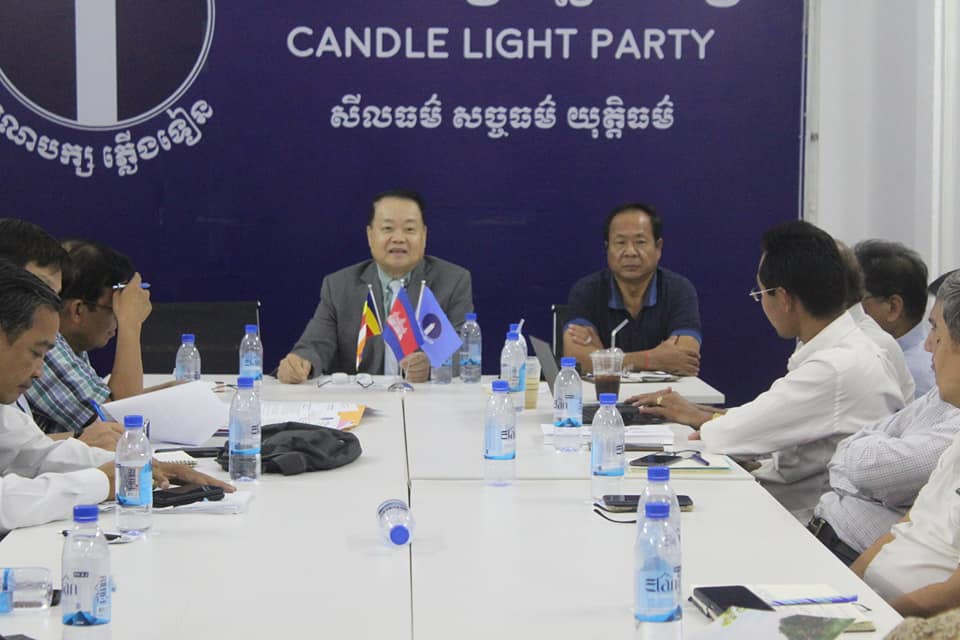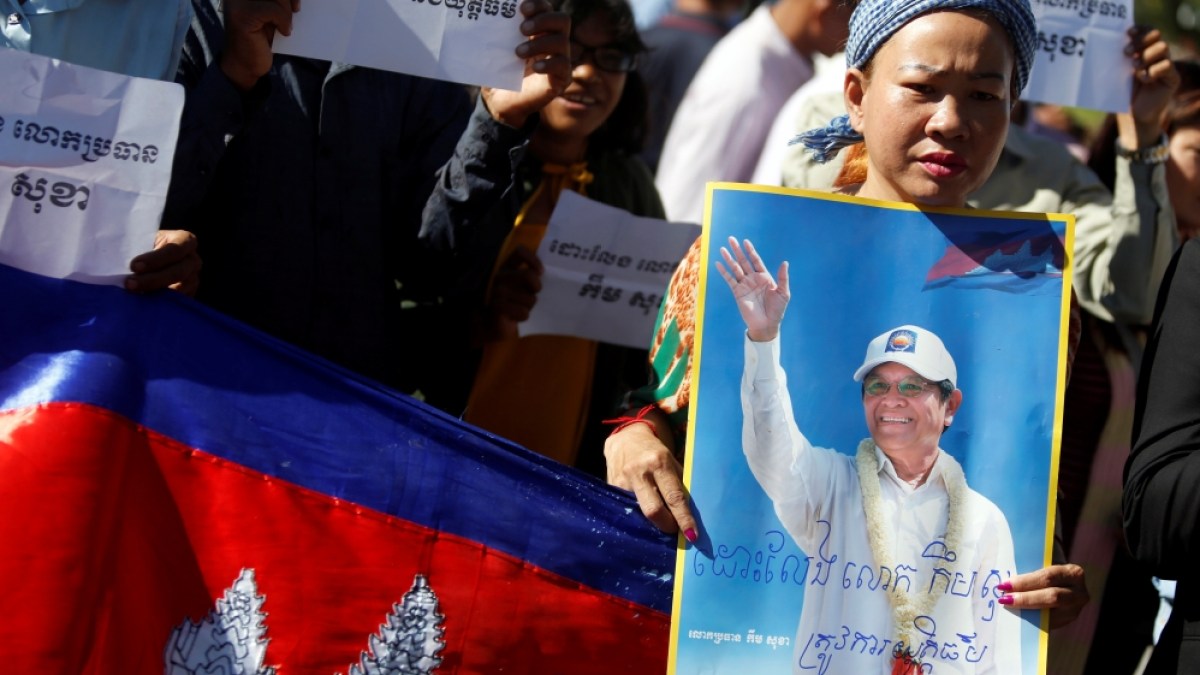Human Rights Watch (HRW) stated on Saturday that a member of a banned Cambodian opposition group was arrested in Bangkok and faces deportation. Thol Samnang is being held at the Suan Phlu immigration detention centre in central Bangkok, according to Sunai Phasuk, HRW Asia’s senior researcher on Thailand.
According to local media sources, Thol Samnang was on his way to the UN High Commissioner for Refugees (UNHCR) office in Bangkok when he was caught near Victory Monument.
In a tweet, Mr Sunai stated that Thailand’s new anti-torture and forced disappearance legislation forbids the deportation of anyone who may risk harm in the destination country.
Urgent Alert! #Thai authorities arrested #Cambodian #refugee and member of opposition Candle Light Party. Thol Samnang escaped persecution by #HunSen government in #Cambodia to seek protection in #Thailand. Thai and international laws prohibit deportation of anyone to face… https://t.co/eKgqWoBaGt
— Sunai (@sunaibkk) July 8, 2023
The Candlelight group, the country’s sole substantial opposition group, lost its bid in late May to lift a ban on participating in national elections on July 23.
After failing to provide required paperwork, the National Election Committee refused to register the party. The judgement was later affirmed by the Constitutional Council, paving the door for long-serving Prime Minister Hun Sen to run a one-horse race.
Hun Sen is accused by critics and rights groups of exploiting the judicial system to suppress dissent to his leadership, particularly in the run-up to elections.
Absolutely critical that #Thailand Immigration does NOT deport #Cambodia Candlelight Party political activist Thol Samnang, who should be considered as asylum seeker & offered protection & immediate access to @UNHCRAsia! says @hrw. @MFAThai https://t.co/6tSitZqKe1 pic.twitter.com/B0bPUEumkn
— Phil Robertson (@Reaproy) July 8, 2023
The Candlelight Party gained traction in the local elections last year, claiming 22% of the popular vote, and was preparing to oppose Hun Sen’s ruling Cambodian People’s Party (CPP) in every constituency in the national elections.
After the opposition Cambodia National Rescue Party (CNRP) was disbanded, the CPP won every seat in the 2018 national elections.
The Candlelight Party, originally the Sam Rainsy Party (SRP), was a Cambodian political party created in 1995 by Sam Rainsy, a renowned Cambodian opposition leader. The party’s goal was to oppose the ruling Cambodian People’s Party (CPP) and advocate democratic changes, human rights, and social justice in Cambodia.
After political conflicts with other party members, Sam Rainsy, a former member of the FUNCINPEC party, created the SRP. The SRP swiftly gained popularity, particularly among urban voters and those dissatisfied with the CPP’s long dominance.
The SRP ran in national elections in 1998, 2003, and 2008, eventually becoming the largest opposition party in the National Assembly. The SRP gained 24 of the 123 seats in the 2003 elections, making it the largest opposition party at the time. The party boosted its seat count to 26 in the 2008 elections.
As the leader of the SRP, Sam Rainsy was noted for his outspoken criticism of the CPP and Prime Minister Hun Sen. He frequently expressed alarm in Cambodia about electoral irregularities, corruption, and human rights violations.
The Cambodia National Rescue group (CNRP) was formed in 2012 after the Sam Rainsy Party united with another opposition group, the Human Rights Party (HRP). The goal of this merger was to unite opposition forces and boost their prospects of defeating the CPP in the 2013 national elections.
Following the CNRP’s dissolution in 2017, Sam Rainsy and other party members maintained their political activity from overseas, campaigning for democratic changes and foreign assistance to address Cambodia’s political predicament.
When the CNRP was disbanded in November 2017, nearly 90% of its members joined Candlelight, a youth-led organisation.
Hun Sen’s CPP emerged as the main political force. Over time, the CPP solidified its authority and formed the country’s de facto one-party regime.
The CPP’s supremacy can be linked to a number of factors, including its historical role in the Khmer Rouge resistance, capacity to produce stability and economic growth, and control over important institutions such as the military, police, and judiciary.
The CPP has also employed patronage networks and a variety of political measures to keep its grip on power.
When the Supreme Court abolished the CNRP, it effectively destroyed any opposition force, further strengthening the CPP’s control.
The lack of a strong opposition has raised concerns about Cambodia’s democracy and political pluralism. Critics claim that one-party rule inhibits political freedoms, suppresses criticism, and limits the space for serious opposition.
Human rights violations, limits on free speech and assembly, and a lack of transparency and accountability in the government have all been accused.





